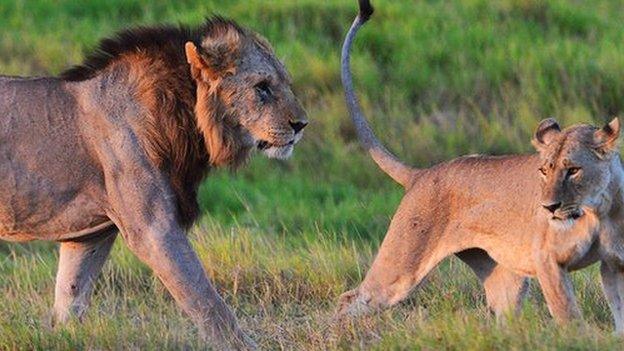Cecil the lion: Walter Palmer returns to work as dentist
- Published
There were angry scenes as Walter Palmer returned to work
The US dentist who generated an outcry after killing a lion called Cecil in Zimbabwe has returned to his dental practice after weeks in hiding.
Walter Palmer arrived at work at 07:00 local time (12:00 GMT), met by a throng of media and a few protesters.
Employees were seen escorting Mr Palmer and patients into the surgery, as photographers swarmed the office.
In recent interviews, he has claimed that the hunt was legal and that he was shocked to hear the animal was famous.
Police were present as the dentist parked his vehicle on a nearby street and walked into his office in Bloomington, Minnesota. A staff member clutched his arm as the pair pushed past a group of journalists.
One woman could be heard screaming "Extradite Palmer!"

At the scene - Laura Bicker, BBC News, Minnesota
"We need to thank Dr Palmer," shouts one protester, "we need to thank him for waking us up". For the half a dozen demonstrators here, Cecil the Lion has become a poster child.
Some say they'd never heard of trophy hunting before Cecil hit the headlines. One lady tells me she felt so strongly she is protesting for the first time in her life.
She holds aloft a handwritten board which reads "Roar for Cecil". They are polite. No shouting, screaming or jostling. A mostly quiet but determined presence.
Dr Palmer has said a few carefully chosen words to the local newspaper, perhaps in the hope he could go back to work without a fuss. But for now, he is still a wanted man.

Mr Palmer did not speak to the media on Tuesday, but did give an interview to the Minneapolis Star Tribune, external on Sunday.
"I need to get back to treating my patients," Mr Palmer said. "My staff and my patients support me, and they want me back. That's why I'm back."
The killing of Cecil in July prompted a global uproar, which Mr Palmer has claimed led to "some safety issues" for his family.
His clinic and his home in nearby Eden Prairie became the site of protests, and his holiday home in Florida was vandalised.
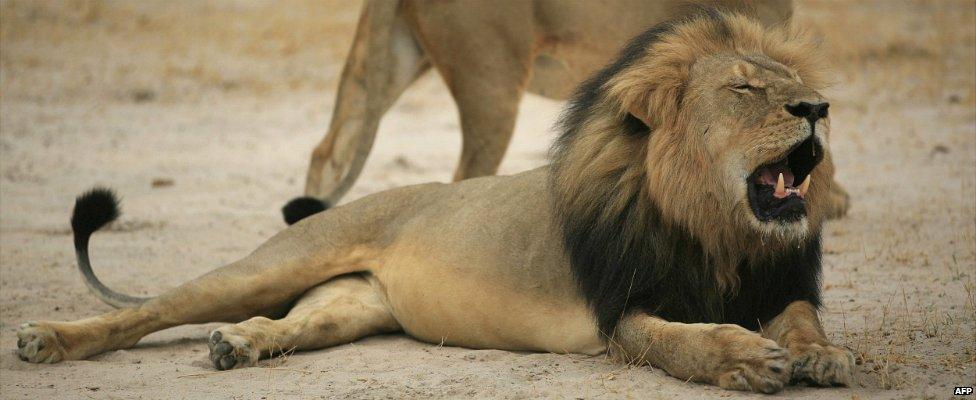
Cecil was well known in the Hwange National Park
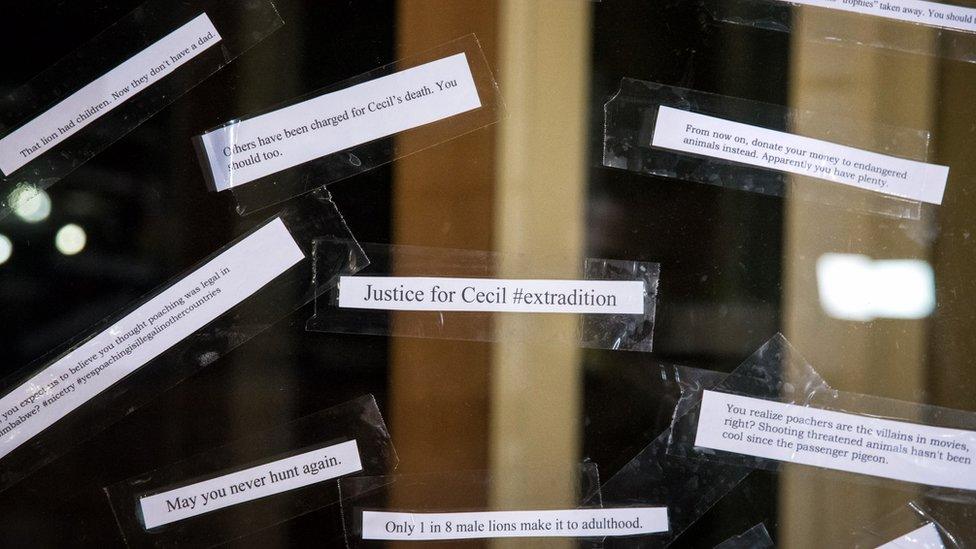
Notes were left on his front door
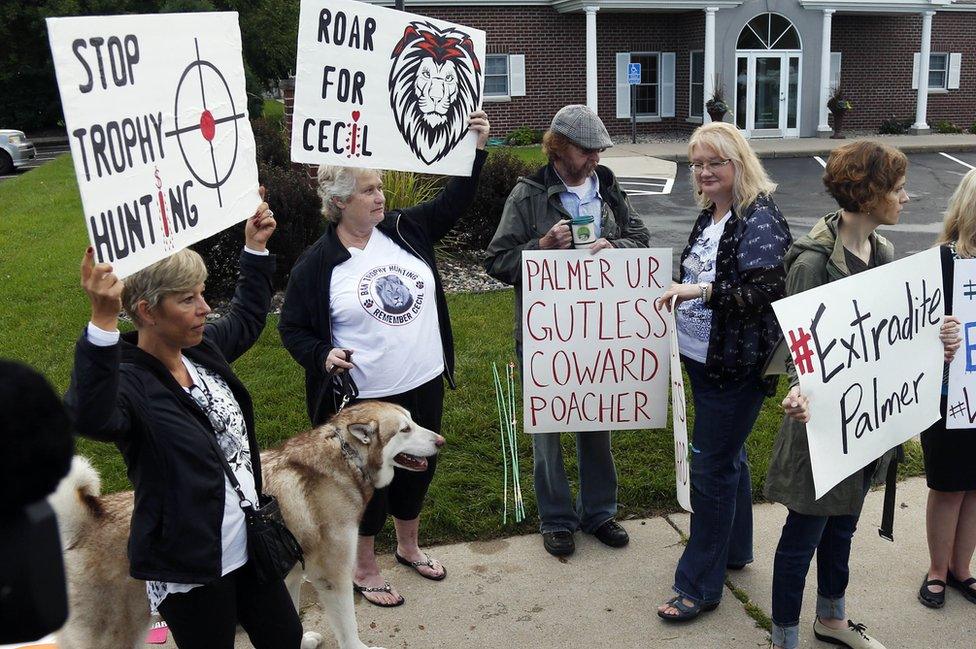
The 55-year-old is believed to have paid $50,000 (£32,000) to hunt a lion in Zimbabwe's largest game reserve, but he says he was unaware it was so famous.
"If I had known this lion had a name and was important to the country or a study obviously I wouldn't have taken it," Mr Palmer said. "Nobody in our hunting party knew before or after the name of this lion."
Cecil was well known in the Hwange National Park and was being tracked with a GPS collar as part of a research programme run by Oxford University.
The Zimbabwe's safari organisation has said the way in which Cecil was lured out of a national park was unethical and possibly illegal.
Initially, Zimbabwe sought to charge and extradite Mr Palmer, but the government's interest in him has waned in recent weeks.
The Associated Press news agency reported that government officials fear it could hamper a hunting industry that is lucrative and important for the country.
Lions in Africa
35,000
Max estimated lion population
12,000
Max lion population in southern Africa
-
665 Approx number of 'trophy' lions killed for export from Africa per year
-
49 Lion 'trophies' exported from Zimbabwe in 2013
-
0.29% Contribution to GDP of Zimbabwe from trophy hunting
-
17% Of Zimbabwe's land given to trophy hunting
- Published30 July 2015
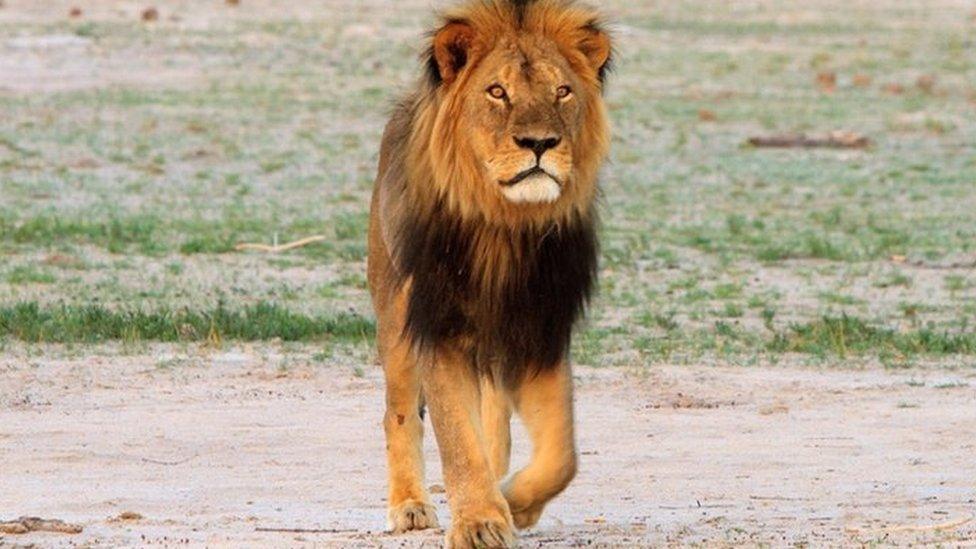
- Published29 July 2015
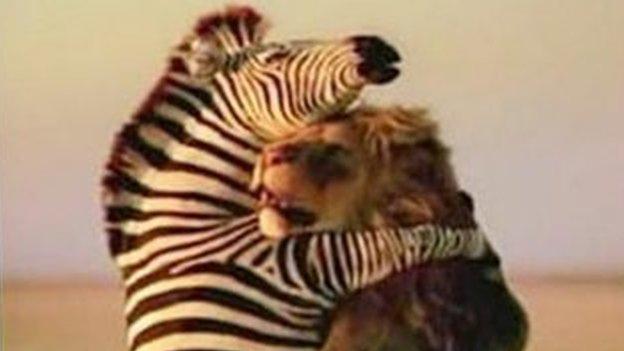
- Published5 December 2012
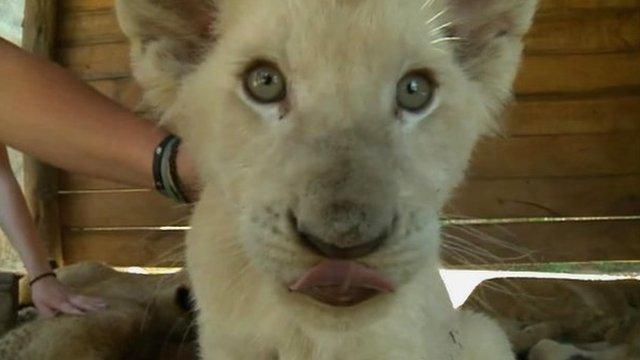
- Published25 May 2015
